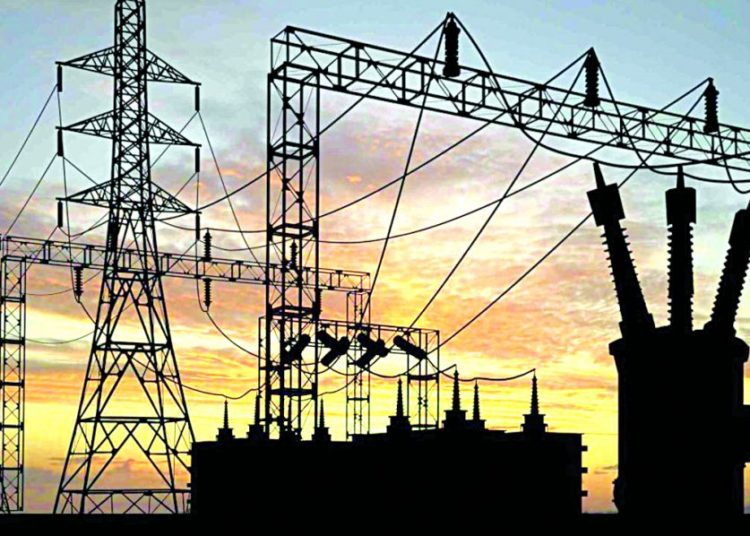The Abuja Electricity Distribution Company’s penchant to impose outrageous bills on customers in the face of poor power supply is not only disgusting but defies logic and smacks of a deliberate attempt to further pauperise some of its already impoverished consumers.
Only recently, Nasarawa State governor, Abdullahi Sule, visited the AEDC office to demand an improvement in power supply to Lafia, the state capital, and its environs, and an end to estimated billing which is responsible for the high tariff being borne by the residents.
Sule said the persistent lamentations of residents over the deplorable state of power supply as well as the untenable estimated billing system, which is making ‘consumers pay through their nose for energy consumption’, necessitated his visit.
As someone who should know best, the governor said it was amazing that Lafia consumers now have the worst power supply even with the Akurba power substation working, with some consumers having less than four hours power supply daily.
“We were thinking that with the Akurba substation and the fact that we have been moved to Band A, we should be getting at least 20 hours daily. I am a witness because I use the same power; there are some people in Lafia getting somewhere between two to three hours daily,” he said.
Power Sector Output Poor Despite Almost N3trn Federal Govt’s Injection
There are media reports that power supply in Lafia and its environs became so epileptic with residents accusing the AEDC of exploiting consumers through an estimated and uniform billing regime.
The residents alleged that AEDC gives every house in Lafia a uniform estimated bill, irrespective of the number of apartments or rooms in each house, and the bill keeps increasing on a monthly basis.
Power users confirmed that the billing started with N10, 000 per month, and rose to N15, 000 and now N20, 000 in the latest bill distributed to residents. This is, to say the least, grossly unfair and exploitative.
In a petition to the acting chief executive officer/chairman, Nigeria Electricity Regulatory Commission (NERC), some residents accused AEDC of failing to live up to its responsibility of providing quality service to the people of Lafia at a fair price.
Curiously, the concerns over deplorable power supply in Lafia in the face of massive load shedding and blackouts is coming on the heels of the commissioning of the 330 KV Lafia power station by President Muhammadu Buhari.
Fundamentally, two issues are at stake. One is the poor power supply and the other is the outrageous billing occasioned by AEDC’s use of billing by estimation.
One is wont to ask: can’t the AEDC make meters available to customers in Lafia? How come after the commissioning of 330KV/132/33KV transmission substation in Akurba, power supply to Lafia and its environs has not improved as envisaged?
While the residents continue to lament the intermittent blackout, the AEDC’s uniform billing, which they describe as unreasonable and outrageous, became the last straw that broke the camel’s back, leading to pockets of protests in Lafia municipal where residents enjoined the AEDC to reverse the high billing and ultimately address the challenges of poor power supply in Lafia.
To understand both the enormity and impact of AEDC’s arbitrary billing, it is necessary to reaffirm the fact that nearly two-thirds of the population of Nigeria are multi-dimensionally poor, according to the statistics revealed by the National Bureau of Statistics (NBS).
As a newspaper, we know too well that generation, transmission and distribution of power is capital-intensive. To that extent, power consumers must be prepared to pay what is commensurate with the services rendered by the players in the electricity mix.
However, what we find hard to comprehend is for people to receive bills that are not in any way commensurate with services provided, as exemplified by the complaints from Lafia and its environs whose residents are largely without meters and hence are subjected to exploitative estimated billing.
It is disheartening to note that should AEDC continue its patently exploitative regime of billing, more people, especially owners of small scale businesses like barbing saloons, grinding machines and the like – and they are plenty in Lafia – will be emasculated from the economic space.
This will further worsen the economic environment for small and medium enterprises, lead to job losses and further widen the poverty net. For this alone, the government must be concerned and, perhaps, that is what informed the decision of Governor Sule to visit AEDC and demand a change.
The AEDC needs to be reminded in unmistaken terms that making meters available to all its customers is in its own best interest as that will put paid to all the issues associated with estimated billing.





